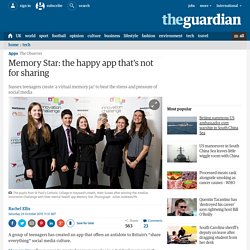

Cracking Creativity Episode 23: Tim Lawrence on Growing Through Adversity, Minimalism, and the Power of Listening - Marketing Your Art the Right Way. Tim Lawrence is a copy editor, writer and adversity researcher.

He has performed at Carnegie Hall, the Barclays Center, and Lincoln Center, and has copyedited for New York Times and Wall Street Journal best-selling authors. In this episode, Tim talks about growing through adversity, the benefits of a minimalist lifestyle, and the power of listening. Here are three lessons you can learn from Tim: You have to challenge yourself if you want to grow When we grow up, we do everything we can to make life easier on ourselves. Challenging yourself is the only way to grow as a person. Otherwise you will be left unfulfilled and bored. The benefits of a minimalist lifestyle One of the great revelations Tim had was the power of owning less.
What he has come to realize is that by owning less, you are able to serve people more effectively. Instead of owning more things, he recommends saving money so you can have experiences. Memory Star: the happy app that’s not for sharing. A group of teenagers has created an app that offers an antidote to Britain’s “share everything” social media culture.

Memory Star allows users to create happy memories in a “virtual memory jar”, which they can revisit at any time to give themselves a boost when they are feeling down. These memories – which can be uploaded photos or messages and appear as constellations on the screen – are not for sharing with social media “friends” on Facebook or Instagram, but are purely personal reminders of happy times. The app was created a group of five 15-year-olds from St Paul’s Catholic College in Burgess Hill, Sussex – Sacha Botting, Dominique Froud, Jack Gumm, Gemma Kelly and Zuzia O’Donoghue – who drew on their own experiences of the pressures of school, friendships, home life and social media to come up with the idea.
O’Donoghue said: “There’s so much pressure to present a very happy image on social media. There’s something very competitive about it. Science Says the Internet Is Turning Us into Shallow Thinkers. Here’s Why That’s a Problem. Edutopia. You are what you do every day.

Simply put, the habits of an excellent educator are that they have positive habits, and students are usually the central focus. When I become intentional about my own habits, I level up my performance. The Power of Habit says that habits power excellence. Taking this to heart, I’ve used apps like 30/30 to build routines until they are automatic. As you prepare your classroom, plan your routines. Paperwork Student movement in the classroom Setting appointments with yourself to tackle essential tasks. Winning teachers seem to do these things like magic.
Establishing Winning Workflows A workflow is as it sounds: how the work flows in your classroom. Classroom Procedures THE Classroom Management Book by Wong and Wong outlines the necessity of classroom procedures. Substitute Teacher Manual Create a substitute teacher handbook to document: Class procedures Lesson plan items Attendance Everything the substitute needs to do.
Student Work Makerspace Items.